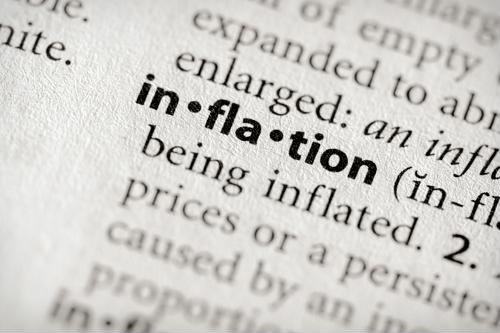Last week, I revealed the secret German method of profiting from inflation. And how one man used it to become the wealthiest person in Germany. Today I’ll show you the not-so-secret German plan to prevent inflation from happening in the first place. Unfortunately, it involves triggering another European sovereign debt crisis in the process. But at least it won’t be inflation, right…
A few weeks ago, I interviewed Philipp Bagus, author of the excellent book The Tragedy of the Euro, and fellow German. In his book he explains the inherent flaws in the euro system using an established economic theory called ‘the tragedy of the commons’.
It’s quite simple really. When you share something, you don’t take care of it. And the common currency of the euro is an example of this.
That’s why some European governments run up absurd deficits and debts. Because they share the euro with other countries that are more responsible, they can abuse the system. And those responsible countries face a choice when a crisis breaks out. They can either bail out the irresponsible spenders, or they can abandon the euro altogether.
Financial markets and Italian politicians are betting that the Germans will simply bail everyone out in the end, so there is no need to fear a major crisis in the eurozone and there is no need to worry about debt and deficits. But this just allows the problem to grow over time.
The Germans are assuming that the rules designed to prevent all this from occurring will be enforced…eventually…somehow…by someone.
Philipp’s book and the interview are crucial if you want to understand just how flawed the euro is.
But Philipp also mentioned something extraordinary in his interview, which I didn’t see coming.
The case against the euro
Just before the interview, Philipp had signed on to a German court case, which called into question the EU economic recovery budget. The claimants argue it was a violation of the EU treaties. And should thus be annulled.
I knew it would be extraordinary news if the case succeeded. It would undermine the EU itself, the EU’s economic recovery, and finally establish a red line, which the EU cannot cross on its path to the United States of Europe. A German constitutional hurdle — they’re tough to get over.
Because of the extraordinarily high stakes, which weren’t being mentioned anywhere else, I asked Philipp to explain the court case to my readers in the UK. You can read that article here. After reading this article, you’ll understand why Philipp’s explanation could be crucial to predicting what happens next. At stake is a panic bigger than Lehman Brothers.
A few weeks ago, Philipp sent me an email. The subject line simply said ‘success’ and linked to a German newspaper story. That story explained the German constitutional court had prevented the German president from signing off on the law which would’ve created a debt union in Europe. A union in which the Germans would be responsible, however indirectly, for the debts of others. The court case, which Philipp had joined, would be heard and the law’s ratification would be delayed until the court’s decision.
Here’s the English-speaking version of what happened from Reuters:
‘Germany’s constitutional court said on Friday that the president may not sign off on legislation ratifying the European Union’s Recovery Fund as long as it was looking into an emergency appeal against the debt-financed investment plan.
‘The statement by Germany’s highest court, after both chambers of parliament ratified legislation this week.’
Here’s what the court itself wrote:
‘We are aware that the Recovery Fund is a political project already decided upon. However, given the considerable risks involved, the federal government should ensure that borrowing at the EU level and a circumvention of the fiscal rules does not become a permanent solution.’
It’s not clear when the court will actually rule on the case. But over the last few weeks, reality has slowly dawned on all sorts of people that the implications of all this could be immense. It could end the presumption that the Germans will be willing to bail out other nations. And without their backing, we’d be right back to the worst of the European Sovereign Debt Crisis of 2012.
An end to eurozone bailouts, or just a dangerous delay?
Here’s how the media covered the news two weeks ago.
The Financial Times:
‘German court challenge to EU recovery fund could last months. Analysts fear hold-up may unsettle investors and undermine confidence in weaker countries.’
Bloomberg:
‘EU Recovery Logjam Publicly Slammed by [French Finance Minister] Le Maire as G-20 Meets’
Bloomberg also mentioned the context of all this:
‘Recovery-fund spending plans also face convoluted bureaucracy from the EU, whose botched vaccine rollout already led to extended virus restrictions.’
And get a load of this from my favourite journalist Ambrose Evans-Pritchard in the Telegraph:
‘A legal sword of Damocles hangs over Europe’s vast bond market
‘With the €750bn Recovery Fund, Europe’s leaders have unwittingly created a device to explode their own project
‘The German constitutional court has struck again. The fund that was supposed to save Europe is in suspended animation.
‘If the European project ever unravels it will probably because of a ruling by the venerable Verfassungsgericht.
‘Each time its interventions become a greater threat. You can stretch the EU treaties and Germany’s Basic Law only so far.
‘The normal etiquette is for the judges to issue polite requests to the German president whenever required. This time they time issued an order. Their hackles are up.’
Now, so far I’ve given you an explanation for what’s happening and why all this matters. By reading the above and what I’ve linked to, you can understand the coming court case, the flaws in the euro and what’s at stake.
But what happens next?
We got a small taste of that in May of 2020, when the German constitutional court fired a shot across the bow of the European Central Bank. ‘Germany’s shock court ruling against the ECB challenges the stability of the euro zone,’ CNBC reported at the time.
Southern Europe relies on two things to avoid a debt crisis. The first is the ECB’s willingness to print money to finance their deficits. They can’t default while their central bank is willing to finance them with freshly printed money.
And secondly, they rely on Germany’s willingness to go along with their own financial prudence being leaned on by Southern Europe via an implicit bailout.
The thing is, the law bans both. Deficit financing and bailouts are not allowed in the treaties — the Germans specifically insisted on this when joining the eurozone in its current form. And eventually, the law will catch up with the spenders.
When?
When the Germans have had enough. And that tends to be when inflation emerges — the oldest of German economic bugaboos.
Inflation and then deflation
All this creates an almightily confusing situation for investors. If inflation emerges, it could trigger an almighty bust up in the eurozone — the biggest default in history even, if Italy is the one to default. And that would be incredibly deflationary.
I’ve seen plenty of analysts predicting deflation followed by inflation, or just inflation, or just deflation. But I’ve just laid out a scenario of inflation being followed by a huge financial panic and deflation. And that would catch out anyone positioning their portfolio for inflation in the future.
So, don’t lose sight of just how flawed the euro is and how close we are to another European sovereign debt crisis. It won’t be a black swan when it happens.
Until next time,
 |
Nickolai Hubble,
Editor, The Daily Reckoning Australia Weekend
P.S: Our publication The Daily Reckoning is a fantastic place to start your investment journey. We talk about the big trends driving the most innovative stocks on the ASX. Learn all about it here.

